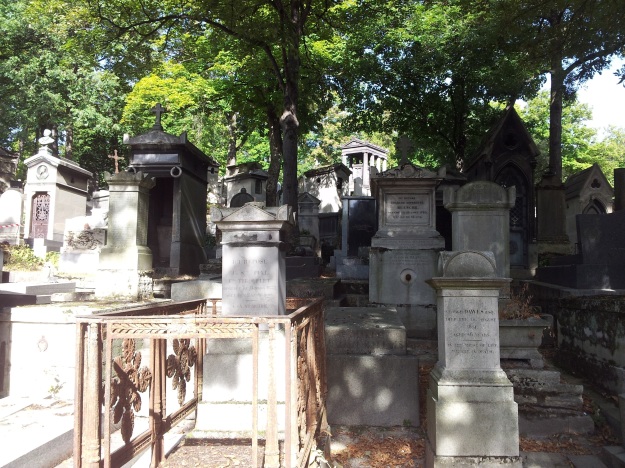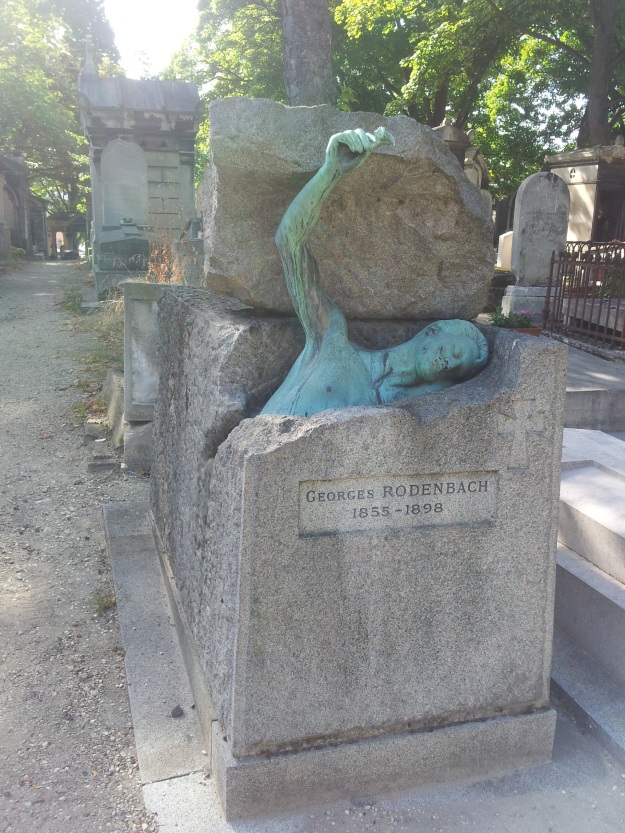A while ago my local second hand bookstore bought a very large collection of books from an estate sale, including an extensive set of literary novels in translation. They are classics now, but would have been contemporary literature at the time they were bought. There were hundreds and hundreds, and the books were in pristine condition – they were so well cared for that they looked unread and untouched. I was chatting to the bookstore owner about it, and he described the collection as “a life’s work”. Once he said that they stopped being just books that I might buy, and started to become books that used to belong to someone else. It made me wonder about their former owner. I couldn’t work out whether or not they were carefully read or if they really were untouched because it was the collecting that was the important thing for their owner. (I have a lot of sympathy for the tender handling of books – one friend described my attitude towards books as a “strange fetish about treating them as art objects”.)
I have about a thousand books which seems an excessive amount now that I am typing it, but it never strikes me that way when I’m standing in front of them. A good percentage of them are work tools, and most of the rest are books that I know I will continue to re-read. On top of that there are some that are gifts, some that I have bought since I couldn’t access them in any other way (my local library system is woeful compared to other countries I have lived in), beautiful art books, and so on. Out of those books, my ‘to read’ pile is easily several solid months of reading deep due to a combination of opportunistic sale buying, prioritising reading library books as they have a due date, and thesis reading quelling much of my appetite and time for additional reading.
The estate sale books made it very clear that there are real limits to the number of books that I can read, and that my books will most likely outlive me (and cease to be ‘mine’). A strange thought, that flimsy paper may be sturdier than a human life. These thoughts should be obvious I know but they tend to swiftly fade into the background. Thoughts about one’s own mortality are hard to keep in view. It has prompted me to cull my books and to consider if I really will want to re-read each one of them again, and if I need to have it on hand. I’ve done this in the past many times, but this time I’m being far more ruthless and have a far less idealised future-reader-me in mind when I’m assessing. I wondered if it was the same for the deceased collector. Did the sheer bulk of books weigh down on them, tethering them in place, physically or psychically? Were they a reassuring presence? Or an increasingly oppressive one? It would be challenging to abandon an endeavor after so many years of dedication.
I’ve been buying more and more e-books recently – mostly because of their cheaper price. When the price is low I am willing to buy books that the library doesn’t have and that I wouldn’t otherwise buy because I’m uncertain about their quality. However I find I forget that I have them without the reminder of their physical presence. And they lack any associated memory of the place and time and occasion of their purchase, whereas merely handling my other books kicks up clouds of recollections. It’s also hard to imagine those e-books having future lives in other people’s hands afterwards, and I don’t know how to go about lending them to friends (which is surely one of the great pleasures of owning books). I like to think about books as little time capsules of ideas traveling through history, but also as physical things with their own narrative of connections and accidents. The estate sale was like the breaking of a seed pod that scattered a trove of slowly gathered and accumulated riches back into the world. But, in an age of the omnipresent internet, and where on my buying several books the local bookseller exclaims “goodness me it’s someone actually buying books rather than selling them” maybe it’s a scenario that is waning.

